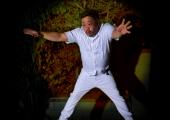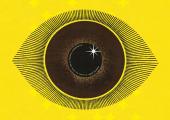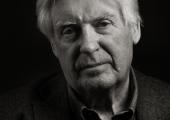The Norwegian musical auteur’s intense third encounter with the French poet
After his death in 1867, it didn’t take long for Charles Baudelaire’s poems to be set to music. Composer Henri Duparc did so in 1870, but Claude Debussy’s late 1880s framing of five of the Symbolist pioneer’s verses confirmed this as more than a one-off fascination for the musical world.
Subsequently, Baudelaire’s words have stimulated myriads of performers: Celtic Frost, The Cure, Serge Gainsbourg, Diamanda Galas and Tyler the Creator amongst them. In France, chanson legend Léo Férre devoted three albums to Baudelaire.









